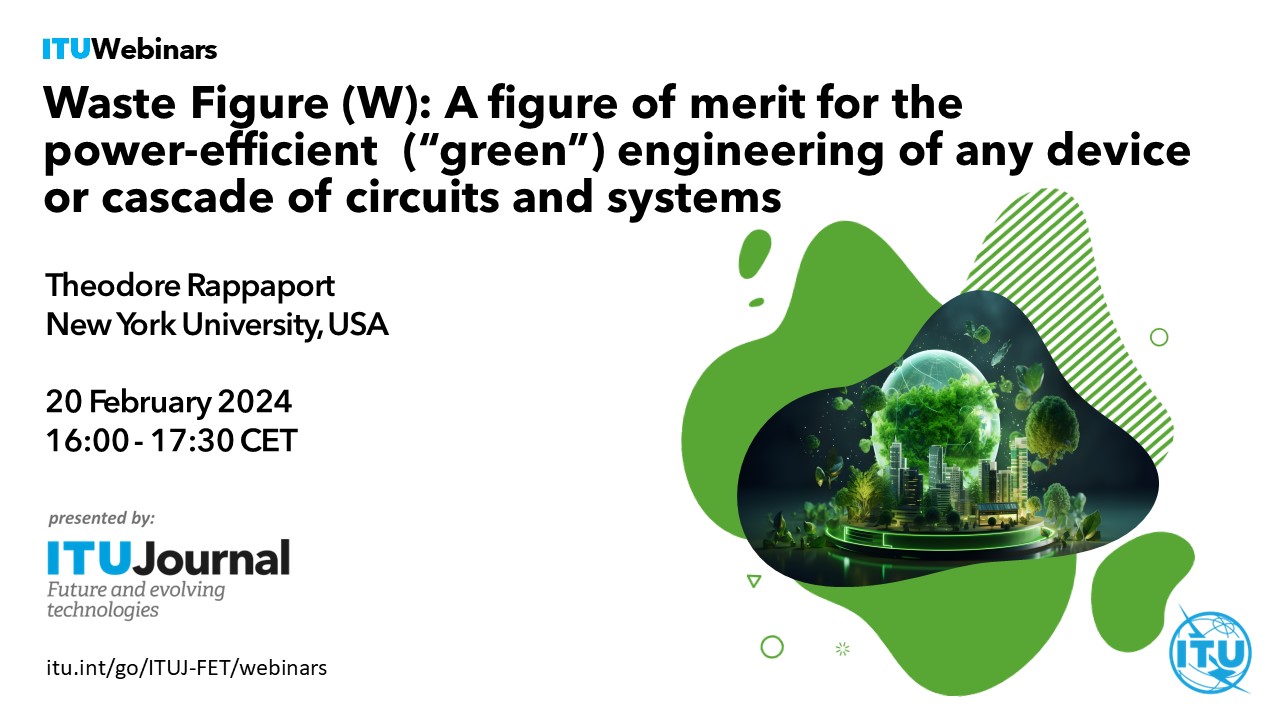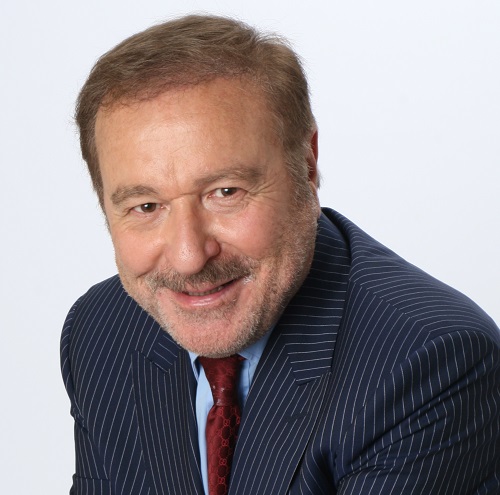
TALK
Despite a great need for the energy-efficient designs of circuits and systems, the electrical engineering field has lacked a clear, well defined metric for quantifying the power efficiency of any cascade of devices or systems. The industry does have such a metric for quantifying the additive noise along a cascade – it is known as the Noise Factor, or Noise Figure when given in dB. The standardized use of Noise Figure provides a Key Performance Indicator (KPI) used to specify virtually all receiving devices or receivers, and is a vital Figure of Merit (FoM) in the research and development of new devices or cascaded systems. In this webinar, Prof. Rappaport introduced a new figure of merit for the comparison of wasted power along any cascade. This new figure of merit, which we call the Power Waste Factor, or simply the Waste Factor (W), or Waste Figure in dB, is derived using a remarkably similar approach taken by Harold Friis in 1944 to create the Noise Factor. Here, we show that the Waste Figure is a powerful figure of merit for comparing and contrasting the power efficiency of any circuit or cascade of circuits or systems. Just as Noise Figure characterizes the additive noise of a cascade, the Waste Figure characterizes the wasted power along a cascade compared to the input power, since the output signal power of a cascade, when multiplied by the system Waste Factor, determines the entire power consumed along the entire cascade. In an era where energy efficiency is more important than ever, the Waste Factor and Waste Figure may be used as a standard KPI to ensure power efficient circuit and system designs. And as shown in this webinar, the Waste Figure may be applied to any cascade, including lossy radio channels, thus providing a FoM that is not only applicable for circuit designs, but also has application for multi-user wireless system and network designs.
WISDOM CORNER: LIVE LIFE LESSONS
Participants had the chance to hear from Prof. Rappaport about his impactful life lessons over the years as well as his advice to young researchers in the field of information and communication technologies.
| Theodore (Ted) S. Rappaport (tsr@nyu.edu) is the David Lee/Ernst Weber Professor in Electrical and Computer Engineering at the Tandon School of Engineering at New York University (NYU), and is a professor in the NYU Courant Computer Science Dept. and the NYU Grossman School of Medicine. He founded the NYU WIRELESS research center in 2012 and the wireless research centers at the University of Texas Austin (WNCG) and Virginia Tech (MPRG) earlier in his career. He has authored or co-authored widely used textbooks on wireless communications, millimeter wave communications, smart antennas, and simulation. He has provided fundamental knowledge for wireless system design and radio propagation channels used to create the IEEE 802.11Wi-Fi standard, the first U.S. digital TDMA and CDMA standards, the first public Wi-Fi hotspots, and has led the world to adopt millimeter wave and sub-Terahertz frequencies for 5G, 6G, and beyond. His work influenced the Federal Communications Commission (FCC) to open up the world’s first mobile telephone spectrum in the millimeter wave bands in 2014-2016 as part of the FCC Spectrum Frontiers ruling, and he again led the FCC to open up spectrum in the sub-Terahertz bands above 95 GHz with the FCC Spectrum Horizons ruling in 2018-2019. He founded two businesses that were sold to publicly traded companies — TSR Technologies, Inc. which pioneered software defined radios for cellphone/paging over-the-air intercept and the first Emergency-911 (E911) cellphone position location system, and Wireless Valley Communications, Inc., a leader in site-specific wireless deployment, and was an advisor to Straight Path Communications which sold 5G millimeter wave spectrum to Verizon. He is a licensed Professional Engineer and is in the Wireless Hall of Fame, a member of the U.S. National Academy of Engineering, a Fellow of the U.S. National Academy of Inventors, and a life member of the American Radio Relay League. His ham radio call sign is N9NB.
|

|
MODERATOR: Ian F. Akyildiz, ITU J-FET Editor-in-Chief and Truva Inc., USA
|
WATCH RECORDING
